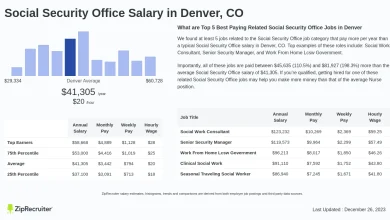How To Choose the Right Contact Center Solution for Your Business

Choosing the right contact center solution can be the defining factor between outstanding customer service and operational chaos. With various technologies available, selecting a system that aligns with your business objectives requires thoughtful consideration of several factors. Whether you’re establishing a new contact center or upgrading an existing one, your selection must scale with your business and meet evolving customer expectations. In this article, we’ll discuss key steps to consider so you can make an informed decision on choosing the best contact center solutions.

Identifying Your Business Needs and Contact Volume
Alt text: Employees at their desks using the best contact center solutions to meet business needs and manage contact volume.
Understanding your business needs is fundamental when selecting a contact center solution. Evaluate your current contact volume and forecast future growth to determine your system’s required capacity. Analyze trends in customer contact preferences, peak times, and interaction complexity to assess your solution’s potential load and necessary features.
It’s also essential to consider your agents’ skills and the level of training they’ll need for new systems. Some platforms may offer advanced functionalities but require a steep learning curve that could disrupt your operations. Look for solutions your team can easily adopt and enhance their capability to serve your customers effectively.
Additionally, consider your customers’ geographical distribution. If your operations span different time zones or regions, your contact center must support multiple languages and work around different working hours. This can affect the required level of system availability and redundancy needed to provide continuous, high-quality support to a global customer base.
Lastly, your organization’s size and structure will influence its managerial oversight and reporting capabilities requirements. A solution that provides real-time analytics and comprehensive reporting can empower managers to make data-driven decisions to improve efficiency and customer satisfaction.
Evaluating Key Features and Integration Capabilities
Alt text: An employee using contact center solutions emphasizing key features aligned with the company’s customer service strategies.
When evaluating contact center solutions, prioritize key features that align with your customer service strategies. Look for advanced Interactive Voice Response (IVR) systems, automatic call distribution, call queuing, and real-time monitoring, which can all contribute to reducing wait times and improving caller experience. Integrating with Customer Relationship Management (CRM) systems will also ensure that customer information is readily available, providing a personalized and efficient service.
Artificial intelligence (AI) and machine learning are revolutionizing contact centers by offering intelligent insights and automation. Capabilities such as chatbots and predictive analytics can improve resolution speed and customer satisfaction. When searching for your ideal solution, ensure it has the flexibility to incorporate these emerging technologies, which are fast becoming industry standards.
Integration capabilities extend beyond internal systems. Your contact center solution must be able to integrate seamlessly with third-party applications that your business relies on. This includes email platforms, social media, workforce management tools, and other software that support your operations. An integrated ecosystem enhances productivity by providing agents with a consolidated interface, removing the need to switch between multiple systems.
Furthermore, consider the platform’s mobile friendliness. With increasing agents working remotely, a mobile-responsive solution ensures that your team can provide support anytime, enhancing your business’s agility and responsiveness to customer inquiries.
Assessing Vendor Reliability and Support Services
Vendor reliability is crucial for the long-term success of your contact center. Research potential providers’ reputations and track records to ensure they are known for stability and consistent service. Look into their history of system outages and security breaches and how quickly they’ve resolved such incidents. A reliable vendor should offer robust security measures and data protection to safeguard sensitive customer information.
Support services are equally important since even the most robust systems may face unexpected challenges. Evaluate the level of support vendors provide, including availability, response times, and the expertise of their support teams. An ideal provider should offer round-the-clock support and a variety of channels through which you can reach them, such as phone, email, or chat.
Also, consider vendors’ commitment to continuous improvement. Those who consistently update and improve their software are likelier to keep pace with the industry’s evolving demands. Check if the vendor listens to customer feedback and whether they have a roadmap for future enhancements that could benefit your business operations.
Demonstrations and trials effectively assess a solution’s fit for your business before committing. Take advantage of these opportunities to experience the system first-hand, challenge its capabilities, and see how it integrates with your current operations. It’s a practical step to ensure confidence in your investment.
Overall, selecting the right contact center solution enhances customer service and operational efficiency. By carefully considering your business needs, key features, vendor reliability, and support services, you can make an informed decision that supports your organization’s growth and adaptability.




